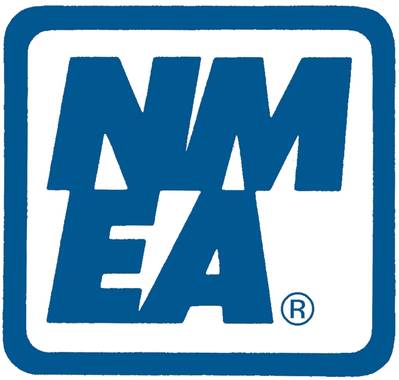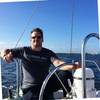LightSquared Outlines Plan to Avoid GPS Interference
Marine electronics industry still has major concerns.
An official of LightSquared, the company that has been under fire for its plan to offer mobile satellite services that could seriously interfere with Global Positioning System (GPS) signals, told a gathering at the 2011 NMEA International Marine Electronics Conference & Expo that solutions were in the works to prevent disruptions from occurring.
“Our integrated network will bring great benefits to wireless users nationwide, but at the same time we’re committed to ensuring this service doesn’t interfere with any GPS devices. We’re eager to work through any issues,” said Geoffrey Stearn, LightSquared’s vice president of spectrum development. He made his remarks at a meeting of the Global Maritime Distress and Safety System Task Force on September 28 in Fort Myers, Florida. The meeting was part of the National Marine Electronics Association’s (NMEA) annual four-day conference and expo.
Stearn accepted NMEA’s invitation to appear at the meeting to discuss the company’s plan to offer mobile satellite services from a frequency band next to that set aside for GPS. FCC-ordered tests conducted in April confirmed concerns that the high-powered LightSquared transmissions would significantly compromise GPS signals. Although the LightSquared frequencies don’t overlap with those allocated for the Global Navigation Satellite System (GNSS), which includes GPS, they are immediately adjacent. In radio transmissions such as these, there are always emissions that stray out of the allocated band and intrude on neighboring frequencies. The fear is that LightSquared’s transmissions would drown out GNSS signals because they are far more powerful.
Stearn told the task force, ”It was a surprise to us that there would be a [GPS] receiver overload.” He added that, based on data the company has collected, “We’re offering mitigation steps that we believe will solve the issue and will ensure our operation will be compatible with people’s continued use of GPS.” LightSquared has proposed the use of filters in GPS receivers along with power levels that the company says won’t interfere with GPS. It also agreed not to operate in a 23MHz band immediately adjacent to the GPS band, at least for now. “We still have licensed rights to the upper band channel,” Stearn said. “We’re not giving it up, but gave control to the FCC. We won’t operate there until the FCC says it’s okay.”
Several people who attended the LightSquared session expressed concerns later that the 23MHz guard band is temporary and that the company will eventually want to use the entire band, maybe at full strength. In addition, although GPS manufacturer Javad GNSS has developed a filter design that may take care of the problem, electronics experts said the design needed to be thoroughly tested by the industry. Bethel Marine Electronics owner Jules Rutstein expressed several concerns. “First of all is the contribution to the noise floor by these transmitters and their effect on GPS and other low-power reception devices. And, secondly, because of the type of transmission and the method used by GPS receivers, the problem will manifest itself as an intermittent problem.
“I believe that what we will see as a complaint from our customers will be a lost signal, and we will not be able to determine why the customer’s chart plotter occasionally will lose its fix. Intermittent problems by nature are more insidious, and since we will not be able to determine the source, it will be that much more difficult. Since the source of the problem may or may not be a function of its location, it may be just the wrong time.
“LightSquared has offered two solutions—one being filters and the other adding a 23Mhz isolation band to the frequency spectrum utilized. The filter is unlikely to be a good fix since it must be installed at the receiver, which may affect performance and on most installations will be impossible to implement. The other solution is the 23Mhz protection band. This will help somewhat, but fieldtesting will have to be done to validate effectiveness. They also mentioned power changes but did not answer the question as to how much and where. I personally feel that this project is being fast-tracked through the system and needs time for its impact to be evaluated.”
“This is an extremely important issue for our members as well as for anyone who relies on GPS, which is just about everyone,” said Bruce Angus, NMEA interim executive director. “We thank Geoff Stearn for coming to the conference and expo to discuss the problem and LightSquared for its commitment to avoiding disruption of the GPS system. We’ll be watching the resolution of this potential problem very closely.”














